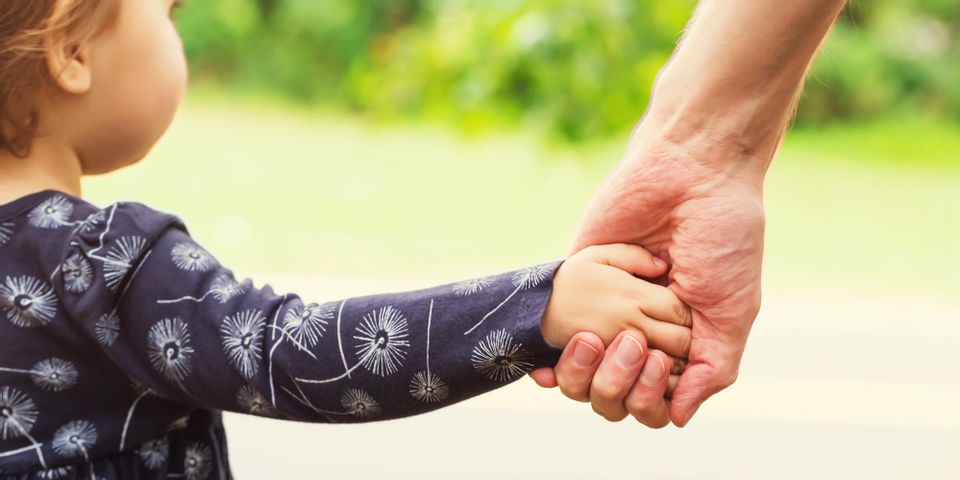A Guide to Co-Regulation for Parents

Co-regulation is an interactive process that helps a child self-regulate their emotions. Co-regulation is a cluster of specific actions by caregivers and others which will effectively support a child’s ability to control impulses, organize behaviors, overcome obstacles, and complete activities. While caregivers like teachers, coaches, and other family members influence children's development of self-regulation, parents and primary caregivers are the most influential in building the child's capacity to regulate their own emotions.
Why is Co-Regulation So Important?
Self-regulation is the ability to manage emotions and behaviors according to the demands of a situation. Self-regulation is the capacity to resist highly emotional reactions to upsetting stimuli, to calm yourself down when you get upset, to adjust to a change in expectations, and to handle frustration without an outburst. Self-regulation enables children to direct their own behavior toward a goal, despite the unpredictability of life and their own feelings in reaction to challenges.
Emotional reactions are influenced by external factors like the environment and interactions with others and by internal factors such as temperament. Some children have particular difficulty regulating their emotions. Of course, young children are just learning to regulate their emotions. Children with ADHD, Autism, youth with Bipolar Disorder, and children with FASD will need help over a longer period of time in order to learn to regulate their emotions. Children who have experienced trauma or sustained high stress have difficulty managing their emotions, too, even at older ages and into adolescence.
The inability to inhibit the immediate behavioral response to the feel of escalated emotion inside is scary for a child. Being out of control often results in the child feeling ashamed, embarrassed, angry, or depressed. Co-regulation helps the child self regulate and s/he can learn and grow after making a mistake and feel confident enough to build new skills and explore different experiences.
How Can You Support Effective Co-Regulation?
Ideally, co regulation begins during infancy, but this is a new concept in parenting. It’s never too late.
The foundation of effective co-regulation between parent and child is a protected, warm, and nurturing relationship. Specifically, sustained eye to eye contact with soft eyes. Being fully present with the child's felt experience, which is listening and observing before speaking.
Providing patience and loving support during a child’s time of stress offers the co-regulation a child needs to cope. It is important to know that the parent’s own emotional state always eclipses the child’s emotional state. Thus, to co-regulate effectively, the parent needs to regulate their own emotions before approaching the child. When a child's emotion escalates after contact with their parent, it is a sign the parent's emotions are not well regulated.
A well regulated parent might respond to a child’s outburst with:
- “Son. It looks like this is upsetting you. I want to talk this through. How can I help you calm down, so we can do that?”
- Or, “Sweetheart, I can see you’re upset. When you’re calmed down, I know we'll be able to straighten things out.”
- Or, "This looks hard for you. How can I help?"
When emotions flare instantly and there seems to be no lead-in or build-up, that is a self-regulation problem. When the emotion builds and builds over time and then the child has a behavioral outburst, that is a self-regulation problem. After practicing the above behaviors in relating to your child, if your child still displays these behaviors, your child may benefit from an assessment to determine why s/he is struggling. A child therapist may be able to help. Parents can help the child restore h/his capacity to regulate their own emotions learning and using co-regulation.
If your child appears to be struggling with self-regulation or is experiencing any other developmental challenges, Sally Caldwell, LPC-S at Fairbanks Psychiatric & Neurological Clinic in Alaska can help. She offers counseling services to help her clients achieve the best possible quality of life. The clinic also specializes in diagnosing and treating central nervous system disorders. Learn more about their approach to counseling, neurology, and psychiatry online; or, call (907) 452-1739 to schedule an appointment.
Special thanks to Sally Caldwell, LPC-S, for her contributions to this article.
About the Business
Have a question? Ask the experts!
Send your question

